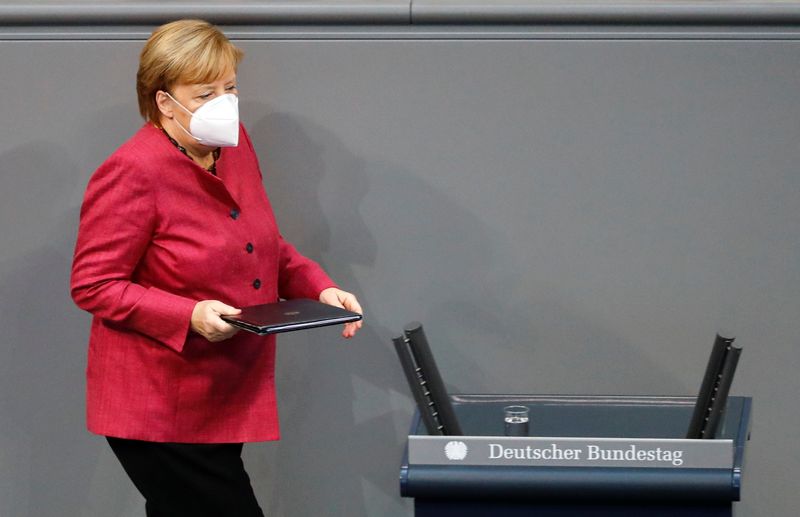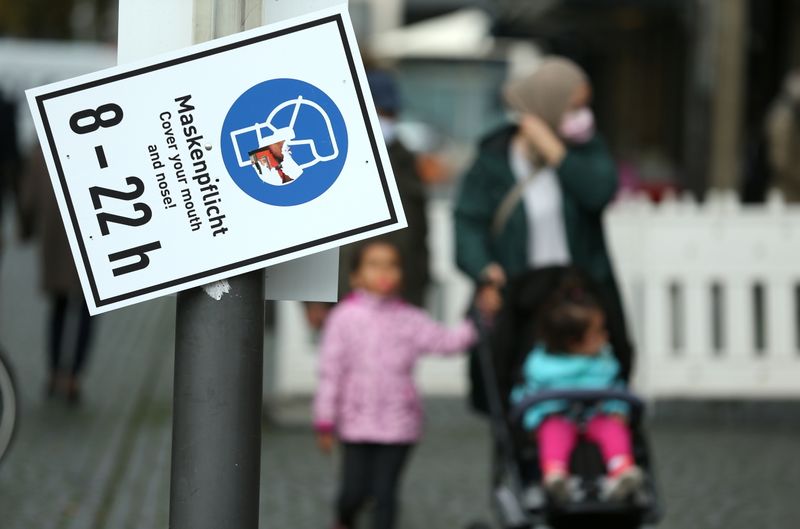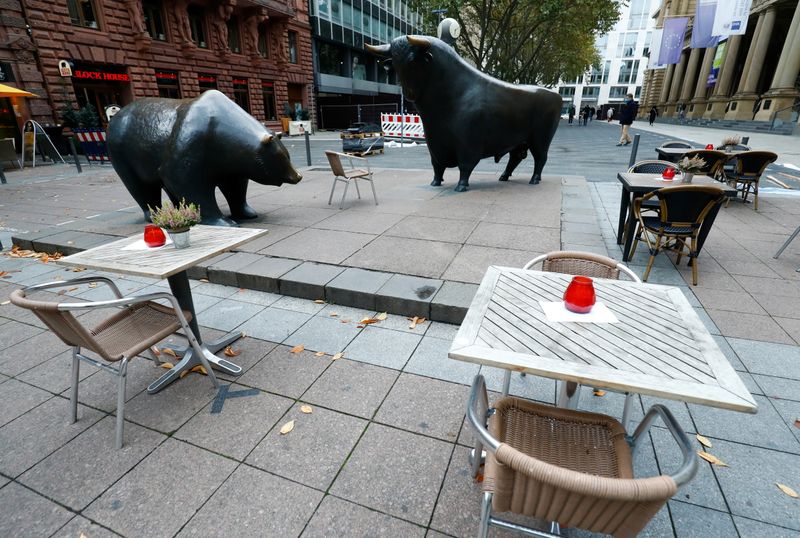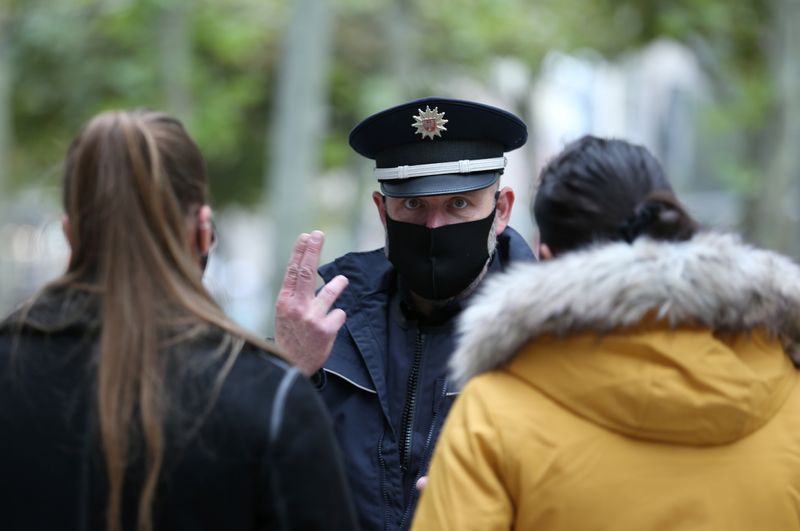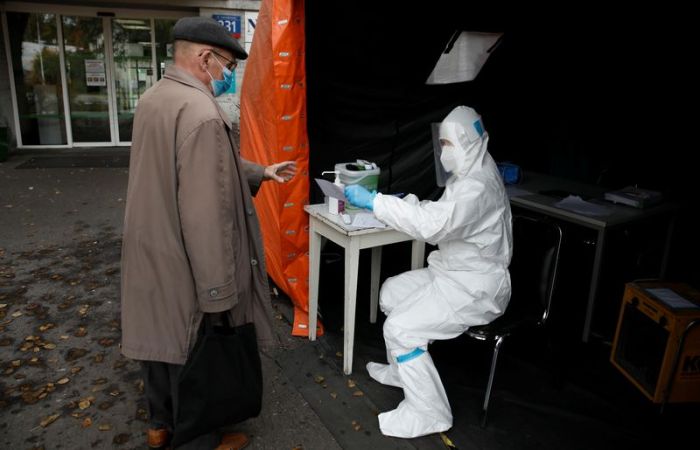BERLIN (Reuters) – Populists who argue the coronavirus is harmless are dangerous and irresponsible, German Chancellor Angela Merkel said on Thursday, defending a circuit break lockdown aimed at slowing the spread of the virus.
“We are in a dramatic situation at the start of the cold season. It affects us all, without exception,” Merkel told the Bundestag lower house of parliament, adding new restrictions to reduce social contact were “necessary and proportionate”.
With an election less than a year away, Merkel is keen to keep Germans on board, despite the risk of a new hit to Europe’s biggest economy. She said populists who question the seriousness of the crisis were putting lives at risk.
“Lies and disinformation, conspiracy theories and hatred damage not only the democratic debate but also the fight against the virus,” she told parliament in a speech during which she was heckled by far-right Alternative for Germany (AfD) lawmakers.
Criticism of the latest restrictions has come from sectors that will be hit hardest, including hospitality and gastronomy.
On a more fundamental level, many AfD lawmakers are angered by what they see as a historic curtailment of freedom.
“The daily bombardment with infection numbers is clearly designed to scare people as most don’t see COVID in their daily lives,” said AfD Honorary Chairman Alexander Gauland.
“In the name of citizens’ health, (the government) has decided on the biggest restrictions of freedom in the history of this republic,” he said.
Worried hospitals will be overwhelmed, Merkel announced on Wednesday a month-long lockdown from Nov. 2 to include the closure of restaurants, gyms and theatres.
Germany was widely praised for keeping infection and deaths below those of many of its neighbours early in the crisis but, like much of Europe, is now in the midst of a second wave. It recorded a record 16,774 rise in cases on Thursday, bringing the total to 481,013. The death toll rose by 89 to 10,272.
“The winter will be hard – four long, hard months – but it will end,” said Merkel.
(Reporting by Madeline Chambers, Sabine Siebold and Thomas Escritt; Editing by Michelle Adair, Maria Sheahan, William Maclean)

